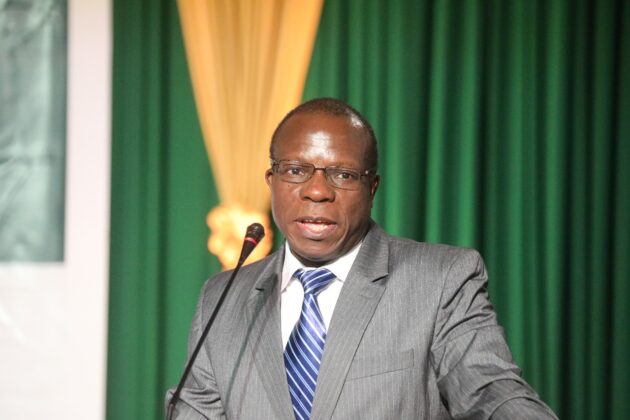NAIROBI, Kenya, Apr 11 – Court of Appeal Judge George Odunga has called for building of trust in conflict resolution mechanisms and institutions in order to inspire confidence and trust in the justice sector by effectively understanding and responding to peoples’ needs and aspirations.
Speaking at Strathmore University in Nairobi when he officially closed the 2025 Annual Mediation Summit on Land, Land Use, and Climate Change Disputes, Justice Odunga who chairs the Mediation Accreditation Committee said this can only be achieved by empowering people and communities to claim their rights and participate in decision-making as a catalyst towards a climate peace.
“Throughout the summit, we heard inspiring milestones that have been achieved and ongoing efforts being made towards the achievement of this goal particularly in land disputes. We need to sustain those efforts in order to sustain peace, close the justice gap, and promote innovative dispute resolutions at the personal, local, national, and global levels,” Justice Odunga said.
“Governments must take the lead but the collective efforts of international organizations, civil society, parliamentarians, the private sector, academia, the justice community, the media, and other stakeholders will be needed to move the momentum forward. Only by working together and solving our disputes in an environment devoid of animosity can we create a more peaceful, just, and inclusive world for all.”
He noted that armed conflicts, which are the biggest threat to world order, are caused by the inability for individuals to embrace an effective conflict resolution mechanism.
He called for investing in proactive conflict prevention and resolution mechanisms, the rule of law and people-centered justice, social inclusion, and effective and accountable institutions saying that this is not only good policy, but also makes economic sense.
The three-day summit that was opened by Chief Justice Martha Koome and whose theme is ‘Enhancing Access to Justice and Promoting a more Cohesive Society through the Use of Mediation in Resolution of Disputes relating to Land, Land Use and Climate Change in Kenya,’ committed to using mediation as a primary tool for resolving disputes related to land, land use and climate change.
This they noted will enhance access to justice and reduce case backlogs, in line with Article 159(2) (c) of the Constitution of Kenya 2010 that recognizes the place of Alternative Dispute Resolution (ADR) processes, including mediation.
In a joint signed communiqué, the summit emphasized the importance of collaboration among the ELC, mediators and stakeholders to ensure effective and inclusive dispute resolution processes, and recognized the need to integrate climate governance into mediation practices to address the environmental impacts and promote sustainable land use.
The stakeholders also committed to protecting the rights and welfare of vulnerable communities including women and youth, affected by land disputes and climate change through restorative justice measures, ensuring compliance with Article 48 of the Constitution of Kenya 2010 which entrenches every person’s right to access justice.
Further, they committed to advocate for continuous capacity building and training for mediators and stakeholders to enhance their skills and knowledge in handling complex land and climate-related disputes, thereby promoting access to justice.
The summit brought together various Court Annexed Mediation stakeholders including the National and County governments, State agencies, development partners, the academia and private sector representatives among others.
